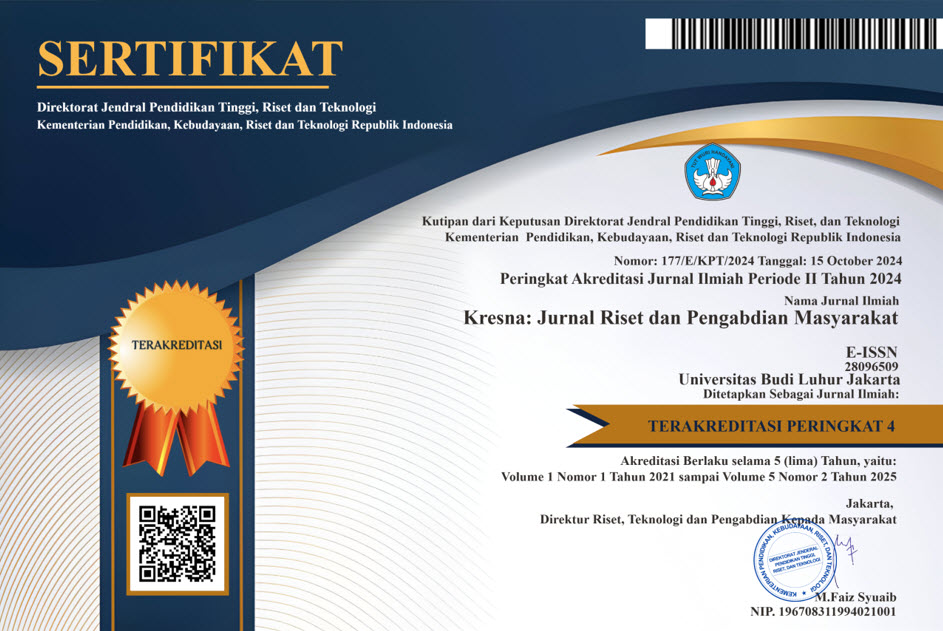Penerapan Algoritma Naïve Bayes Untuk Melakukan Analisis Sentimen Pada PT Pos Indonesia (Persero)
Application of Nave Bayes Algorithm to Perform Sentiment Analysis at PT Pos Indonesia (Persero)
DOI:
https://doi.org/10.36080/jk.v2i2.51Keywords:
pos indonesia, naïve bayes, twitterAbstract
Pos Indonesia is the oldest shipping service that is widely known to the public, so it has different opinions on the performance of postal expeditions. The author identifies the problem in this research, namely the public's sentiment on the services of PT. Pos Indonesia (Persero) which is found on the Twitter social media platform and the number of positive or negative sentiments towards the services of PT. Pos Indonesia (Persero).
Researchers use social media Twitter as a medium to get data to examine the performance of the Indonesian Post. In this research, the writer intends to analyze the sentiment towards PT. POS Indonesia (Persero) as an identification material for negative and positive opinions by using the nave Bayes algorithm to determine the service performance of PT. POS Indonesia (Persero). Researchers also use CRISP-DM as a data processing method and use rapid miner applications to obtain, process and produce positive and negative classifications. Classification of data in this study took 141 tweets discussing PT. POS Indonesia (Persero) on Twitter media by using the keyword Pos Indonesia. The results of this study resulted in a positive sentiment value of 63% and a negative 37%. With the highest accuracy, the 80:20 data split method uses the Naive Bayes algorithm of 64.29%.
Downloads
References
I. Harahap, “Majalah Ilmiah Informasi dan Teknologi,” Februari 2022. [Online]. Available: https://www.ejurnal.stmik-budidarma.ac.id/index.php/inti/article/view/3743/2546.
PT Pos Indonesia, “Sejarah Pos Indonesia,” 25 Mei 2022. [Online]. Available: https://www.posindonesia.co.id/id/content/sejarah-pos.
Munthe dkk, “Penerapan Algoritma Text Mining dan TF-RF Dalam Menentukan Promo Produk PadaMarketplace,” RESOLUSI: Rekayasa Teknik Informatika dan Informasi, pp. 110-115, 2022.
F. V. Sari and A. Wibowo, “Analisis Sentimen Pelanggan Toko Online Jd.Id Menggunakan Metode Naïve Bayes Classifier Berbasis Konversi Ikon Emosi,” Jurnal SIMETRIS, vol.10, no. 2, pp. 681-686, 2019.
A. F. Hadi, D. Bagus. W. and M. Hasan, “Text Mining Pada Media Sosial Twitter Studi Kasus: Masa Tenang Pilkada DKI 2017 Putaran 2,” pp. 324-331, 2017.
B. Bustami, “Penerapan Algoritma Naive Bayes Untuk Mengklasifikasi Data Nasabah Asuransi,” TECHSI: Jurnal Penelitian Teknik Informatika, vol. 8, no. 1, pp. 884-898, 2019.
P. Antinasari, R. S. Perdana and M. A. Fauzi, “Analisis Sentimen Tentang Opini Film Pada Dokumen Twitter Berbahasa,” Jurnal Pengembangan Teknologi Informasi dan Ilmu Komputer, vol. 1, no. 12, pp. 1733-1741, 2017.
D. G. Nugroho, Y. H. Chrisnanto and A. Wahana, “Analisis Sentimen Pada Jasa Ojek Online Menggunakan Metode Naive Bayes,” Analisis Sentimen Pada Jasa Ojek Online, vol. 1, no. 1, pp. 156-161, 2016.
F. M. Matunatwa, E. Sediyono and A. Iriani, “Text Mining Dengan Metode Lexicon Based Untuk Sentiment Analysis Pelayanan PT. Pos Indonesia Melalui Media Sosial Twitter,” 2017.
S. Navisa, L. Hakim and A. Nabilah, “Komparasi Algoritma Klasifikasi Genre Musik pada Spotify Menggunakan CRISP-DM,” Jurnal Sistem Cerdas, 2021.








 Kirim email ditujukan ke
Kirim email ditujukan ke 
